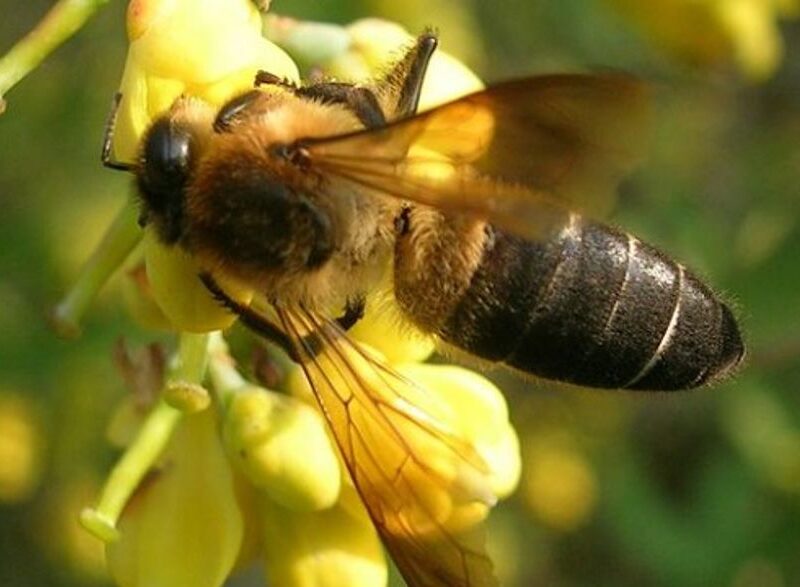In the world of intermittent fasting, the choices you make during your fasting window can significantly impact your journey. Among the many questions that arise, one that often stirs curiosity is, “Can I enjoy my favorite cup of tea with artificial sweetener without derailing my fast?”
Yes, Most artificial sweeteners are fine to use during intermittent fasting because they don’t have calories or impact your insulin levels. You can enjoy them in drinks like coffee or tea while fasting. They’re also handy for replacing sugar in recipes and adding a sweet taste to your beverages without extra calories.
Let’s explore the world of tea and artificial sweeteners in intermittent fasting.
Categories of Sweeteners: Nutritive and Non-Nutritive
Sweeteners neatly segregate into two primary categories: nutritive and non-nutritive, each with distinct attributes:
Nutritive Sweeteners: These sweeteners, laden with calories, supply energy upon consumption. Familiar entries in this group encompass table sugar (sucrose), honey, agave, fructose syrup, and sugar alcohols like sorbitol, maltitol, and xylitol.
Notably, sugar alcohols, denoted by names ending in “-ol,” typically contain roughly half the calories of regular sugar, with erythritol being the exception, boasting an almost negligible calorie content of 0.2 per gram—around 95% less than table sugar. However, even the least caloric among them, erythritol, aligns more with non-nutritive sweeteners in calorie count.
In the context of fasting, it is advisable to steer clear of nutritive sweeteners due to their calorie content, which can disrupt your fasting state. Furthermore, if your fasting goals revolve around gut health improvement, sugar alcohols such as sorbitol, maltitol, and xylitol can inadvertently nourish harmful gut bacteria.
Non-Nutritive Sweeteners: These sweeteners contribute minimal to no calorie content, often delivering a significantly sweeter taste than regular sugar. Referred to as “high-intensity sweeteners,” they require only small amounts to achieve the desired sweetness. Common non-nutritive sweeteners include sucralose (Splenda), steviol glycoside (Stevia), saccharin (Sweet’N Low), aspartame (Equal), acesulfame (Sunett), and luo han guo fruit extract (e.g., Monk Fruit).
Additionally, there’s a newer FDA-approved sweetener, Allulose, which falls between the two categories. It contains a slight natural content and is approximately 70% as sweet as table sugar. While it’s generally advisable to abstain from sugars and artificial sweeteners during fasting, given their calorie-free nature, beverages with non-nutritive sweeteners can technically be consumed if desired.
Intermittent Fasting: Unlocking the Power of Timed Eating

Intermittent fasting is a smart way of eating that alternates between periods of eating and fasting. Two popular methods are time-restricted eating, where you eat only during specific hours each day, and alternate-day fasting, which involves fasting for a full 24 hours every other day. The beauty of it lies in its ability to offer a wide range of health benefits.
In addition, one of its standout perks is how it can enhance brain function. Studies show that fasting triggers the production of a special protein called brain-derived neurotrophic factor (BDNF), which is vital for the growth and survival of brain cells. This boost in BDNF can lead to better cognitive function, improved memory, and a happier mood.
But the benefits of intermittent fasting go beyond just the brain. It has the potential to slow down the aging process by activating certain genes and cellular pathways responsible for cell repair and regeneration. This means it could reduce the risk of age-related diseases like Alzheimer’s and Parkinson’s.
For a simpler, healthier life, consider giving intermittent fasting a try. It’s a straightforward approach to eating that can bring you a host of rewards for both your body and mind.
What is Artificial Sweetener?
Artificial sweeteners are man-made sugar alternatives designed to add sweetness to food and drinks without the calorie load of sugar. You’ve probably heard of popular ones like sucralose, aspartame, and saccharin. They’re commonly used in diet drinks and sugar-free products.
These are a response to the need to cut down on sugar. Overindulging in sugar can lead to health issues like obesity, diabetes, and tooth decay. They give people a way to enjoy sweet treats without these potential downsides.
However, there’s some debate about their safety. Some studies have raised concerns, suggesting they might increase the risk of cancer or disrupt the body’s natural blood sugar control. To really understand their long-term effects, more research is necessary.
What Are The Types Of Artificial Sweeteners?
Sucralose: Sucralose is a popular artificial sweetener known for its high sweetness level and is often used in diet sodas and sugar-free products.
Aspartame: Aspartame is widely used and can be found in sugar-free gum, candy, and a variety of other low-calorie products.
Saccharin: Saccharin has been in use for over a century and is still found in some diet products today.
Stevia: Stevia is a newer derived from a plant and is often marketed as a natural alternative to artificial sweeteners.
Acesulfame potassium (Ace-K): Acesulfame potassium is often used in combination with other sweeteners to enhance sweetness and is found in a range of low-calorie and sugar-free foods and beverages.
Cyclamate: Cyclamate was once a popular choice but is now banned in some countries due to safety concerns.
Neotame: Neotame is a relatively new artificial sweetener with a high level of sweetness and is used in various food products.
Advantame: Advantame is a very potent , approved for use in some countries, but it’s not as widely used as other sweeteners.
Key Considerations for Selecting Tea with Artificial Sweeteners for Intermittent Fasting
When opting for tea sweetened with artificial sweeteners during your fasting window, several critical factors merit attention. Ensure that the tea you choose contains no calories, caffeine, or potentially harmful components. It’s wise to lean toward teas renowned for their soothing or appetite-suppressing attributes, such as chamomile or peppermint varieties.
Further, the type of them used warrants careful consideration. Some, like aspartame, have raised concerns regarding adverse health effects that could potentially disrupt your fasting goals. To play it safe, opt for teas sweetened with natural alternatives like stevia or monk fruit extract.
Lastly, prioritize the quality of the tea itself. Seek out teas crafted from premium, organic ingredients, free from additives or preservatives. This choice ensures that you derive the maximum health benefits from your tea while aligning seamlessly with your intermittent fasting objectives.
Which Artificial Sweeteners Can You Have While Fasting
Here is some fasting-friendly artificial sweeteners:
- Stevia: A natural one is derived from nature, it is generally considered fasting-safe and is among the more secure options.
- Monk Fruit: Another with zero calories, monk fruit may have a mild impact on insulin levels, but research hasn’t definitively determined if it’s sufficient to disrupt your fast. Employ it in small amounts.
- Erythritol: This sugar alcohol sourced from fruits and vegetables has an incredibly low-calorie content (around 0.2 calories). It doesn’t seem to affect insulin levels significantly, but some studies suggest it may stimulate the gut.
- Splenda: Splenda typically doesn’t trigger an insulin response. However, frequent use may have adverse effects on gut health. If you choose to use Splenda, do so in moderation and intermittently.
What Artificial Sweeteners Are Banned During A Fast?
Artificial sweeteners to avoid during fasting include those with calories, such as maltitol, xylitol, sorbitol, and mannitol. These sweeteners can raise your insulin levels and break your fast because they contain calories.
However, if your fasting goal includes enhancing gut health or promoting autophagy for longevity, it’s best to avoid consuming anything altogether. Even zero-calorie sweeteners have to be metabolized or excreted in some way, potentially interfering with your fasting benefits.
For instance, sugar alcohols like maltitol can nourish harmful gut bacteria. So, if your fasting aim is to improve gut health, using sugar alcohols as sweeteners could undermine the fasting benefits you’re seeking.
Advantages of Incorporating Tea into Your Intermittent Fasting Routine
Integrating tea into your intermittent fasting regimen can yield a multitude of benefits. It aids in maintaining hydration levels, curbing appetite, and giving your metabolism a welcome nudge. Notably, certain tea varieties, like green tea, carry the added bonus of potential weight loss and anti-inflammatory properties.
Furthermore, tea can enhance mental clarity and concentration during intermittent fasting. The caffeine present in tea offers a natural and sustained energy lift without the abrupt crashes associated with sugary or highly caffeinated beverages. On a calming note, select teas such as chamomile or lavender can soothe both body and mind, a valuable asset during fasting periods when hunger and stress may loom large.
Possible Adverse Effects of Artificial Sweeteners on Health

Though generally regarded as safe when consumed in moderation, they have been associated with potential adverse health effects in specific individuals. These concerns encompass digestive disturbances, headaches, and alterations in gut microbiota composition. Additionally, some researchers have posited that prolonged artificial sweetener use may elevate the risk of certain conditions, including cancer and diabetes.
Nonetheless, one study even hinted that they might lead to weight gain rather than weight loss, disrupting the body’s innate calorie regulation mechanisms. Dental health is another facet to consider, as these sweeteners can contribute to tooth decay and erosion.
It’s vital to acknowledge that research into the potential downsides of artificial sweeteners is an evolving field, with varied findings across studies. If you harbor reservations about these sweeteners’ possible side effects, there’s a plethora of natural alternatives like honey, maple syrup, and stevia that can be used in moderation, offering a safer and potentially healthier choice.
FAQS
What are the best teas to enjoy during intermittent fasting?
During intermittent fasting, opt for teas without calories or caffeine. Herbal teas like chamomile and peppermint, caffeine-free rooibos tea, and fruit-infused teas like lemon or berry are excellent choices.Herbal drinks and caffeinated teas like black and green tea can be consumed while intermittent fasting without risk
Are there natural sweeteners to replace artificial ones during fasting?
Yes, you can choose natural sweeteners like honey, maple syrup, agave nectar, or stevia extract. Use them in moderation, as excessive sweetener consumption can have adverse health effects.
Does stevia affect fasting?
No,Stevia, specifically steviol glycoside, contains no calories or protein and doesn’t break a fast. Studies suggest it may help regulate blood sugar, making it an ideal fasting sweetener for weight loss or longevity goals.
Does sucralose impact fasting?
No, Sucralose, found in Splenda, doesn’t contain calories and won’t break your fast. However, it may affect gut health and glucose metabolism differently, so consider other sweeteners for fasting.
Is aspartame fasting-friendly?
Yes, Aspartame, found in products like ‘Equal,’ doesn’t break a fast due to its calorie-free nature. However, prolonged consumption may impact gut health and insulin resistance, so consider alternatives if you fast regularly.
Is any tea acceptable during intermittent fasting?
Yes, many teas are acceptable during intermittent fasting. Opt for teas that are calorie-free and caffeine-free for the best fasting experience.
Can I drink zero sugar sweet tea while fasting?
Yes,Zero sugar sweet tea can be consumed during intermittent fasting as long as it doesn’t contain calories or caffeine. Be cautious of added artificial sweeteners, as they may have varying effects on fasting.
What tea won’t break intermittent fasting?
Teas that won’t break intermittent fasting include herbal teas (e.g., chamomile, peppermint), caffeine-free teas like rooibos, and fruit-infused teas without added sugars. Stick to teas without calories or caffeine.
Does a cup of tea break intermittent fasting?
No, A plain cup of tea without calories or caffeine typically doesn’t break intermittent fasting. However, watch for additives or sweeteners that may affect your fasting state.
Final Words
The choice of whether to consume tea with artificial sweeteners during intermittent fasting depends on your individual fasting goals and preferences. Artificial sweeteners like stevia, sucralose, and aspartame, when used in moderation, typically do not break a fast in terms of caloric intake. However, potential effects on gut health, insulin resistance, and personal tolerance should be considered.
Moreover, it’s essential to prioritize your overall well-being and fasting objectives. If maintaining a strict fast is crucial for your fasting goals, you may prefer to stick with plain water or unsweetened beverages during fasting periods.
On the other hand, if you find that they enhance your fasting experience and help you stay on track, they can be used in moderation. As always, individual responses to fasting and sweeteners may vary, so listening to your body and seeking professional guidance when needed is advisable. Ultimately, the decision should align with your fasting approach and personal preferences.



